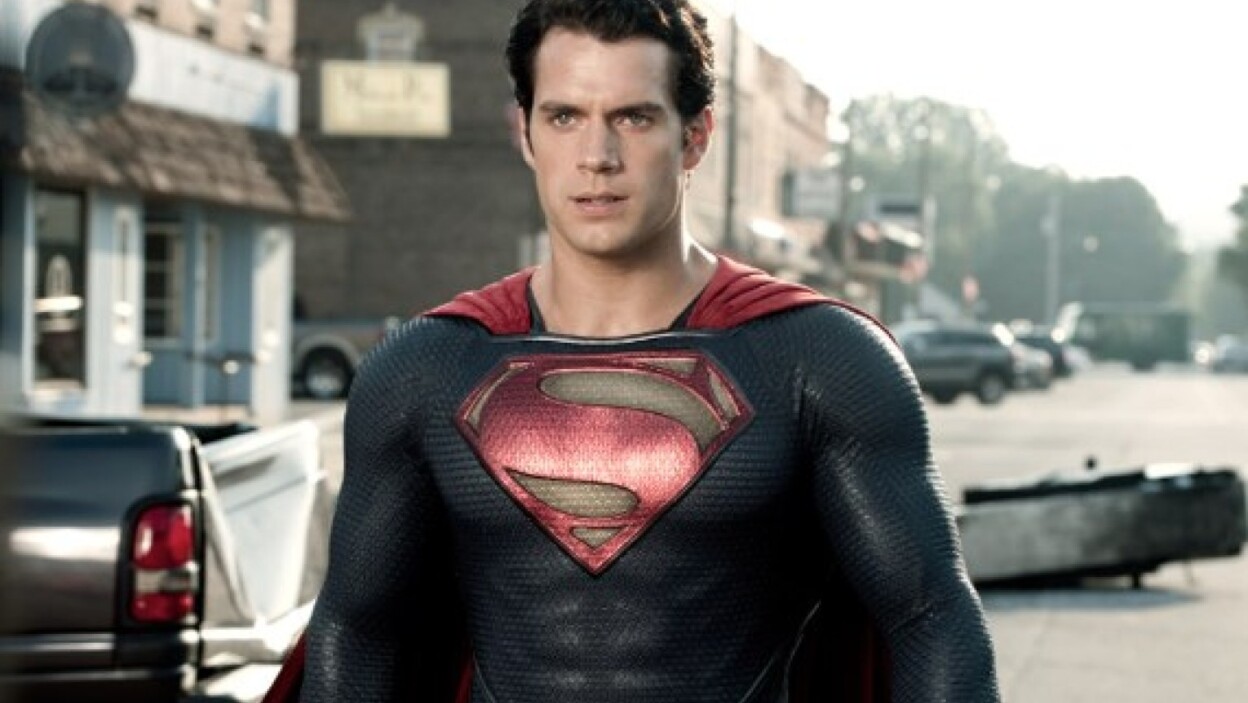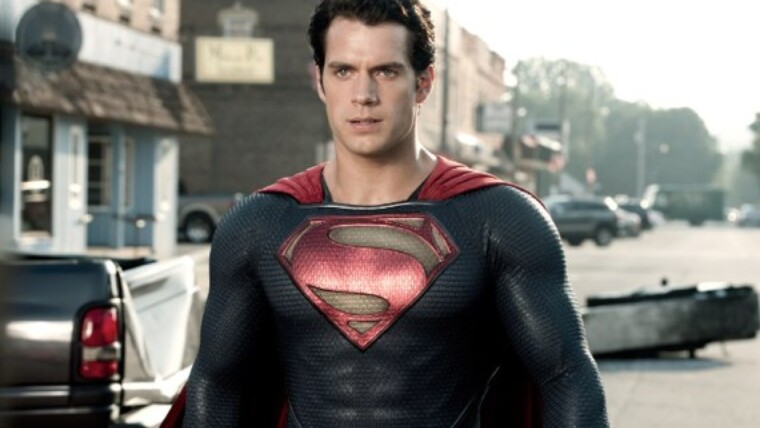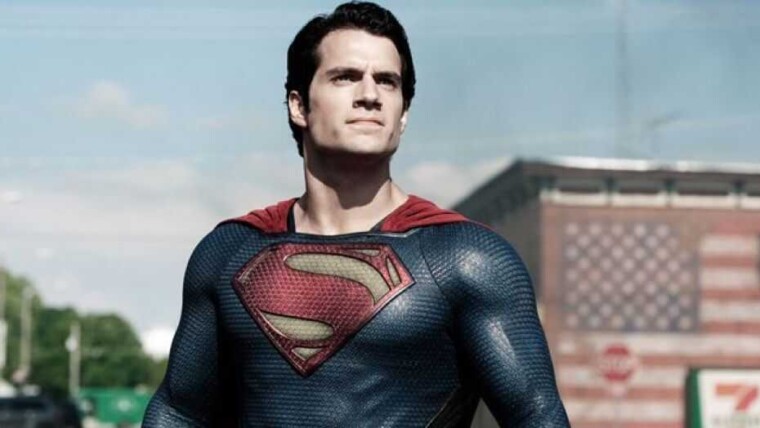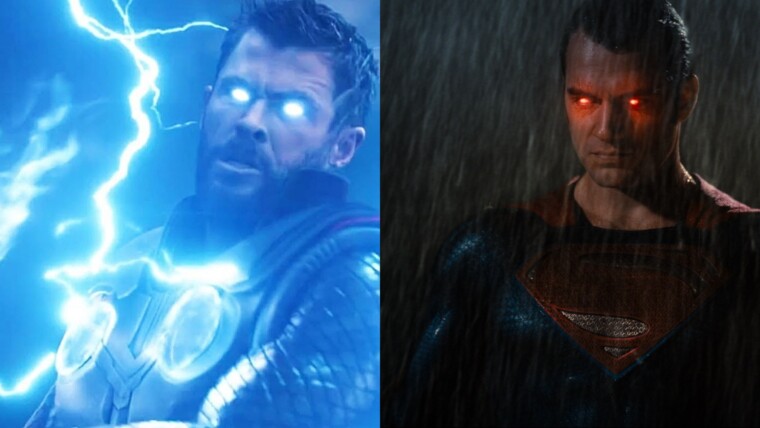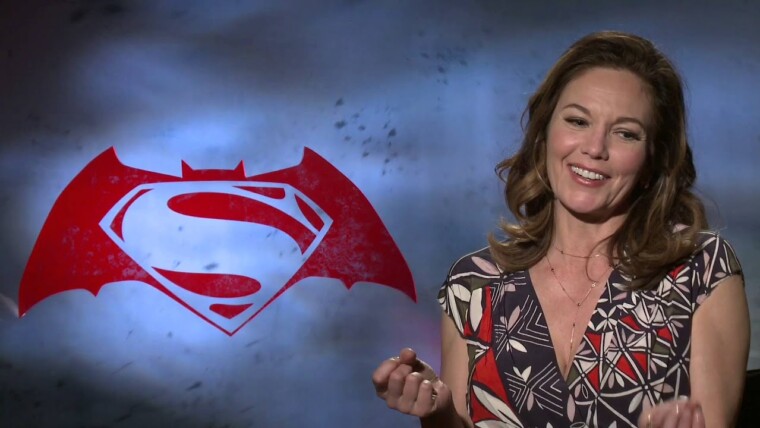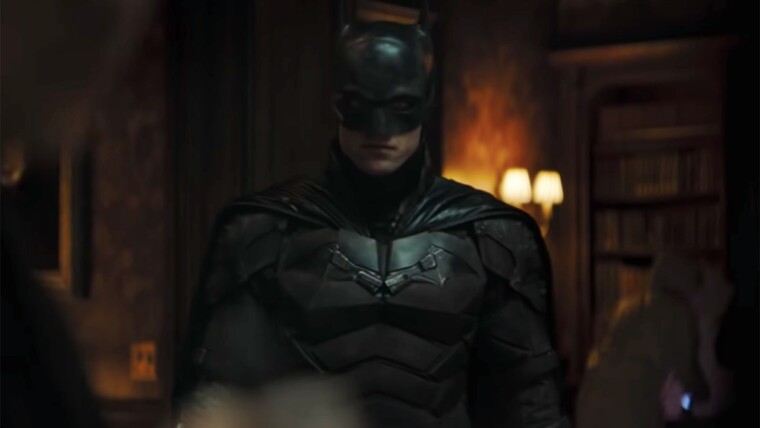Superman AKA the Man of Steel has always existed as a sort of paradox in my book. On one hand, he’s lauded as a cultural icon, a legend within the world of comics. He’s seen as the very epitome of what makes a hero great. Yet at the same time, people think he’s more boring than a slice of crustless white bread next to a cup of room temperature water. I too was guilty of carrying this contradiction in my view of the Man of Steel. I mean I acknowledge his cultural relevance and his contribution to media but yet I didn’t really give a shit about it. That was until I began reading 2016’s DC Rebirth version of Action Comics.
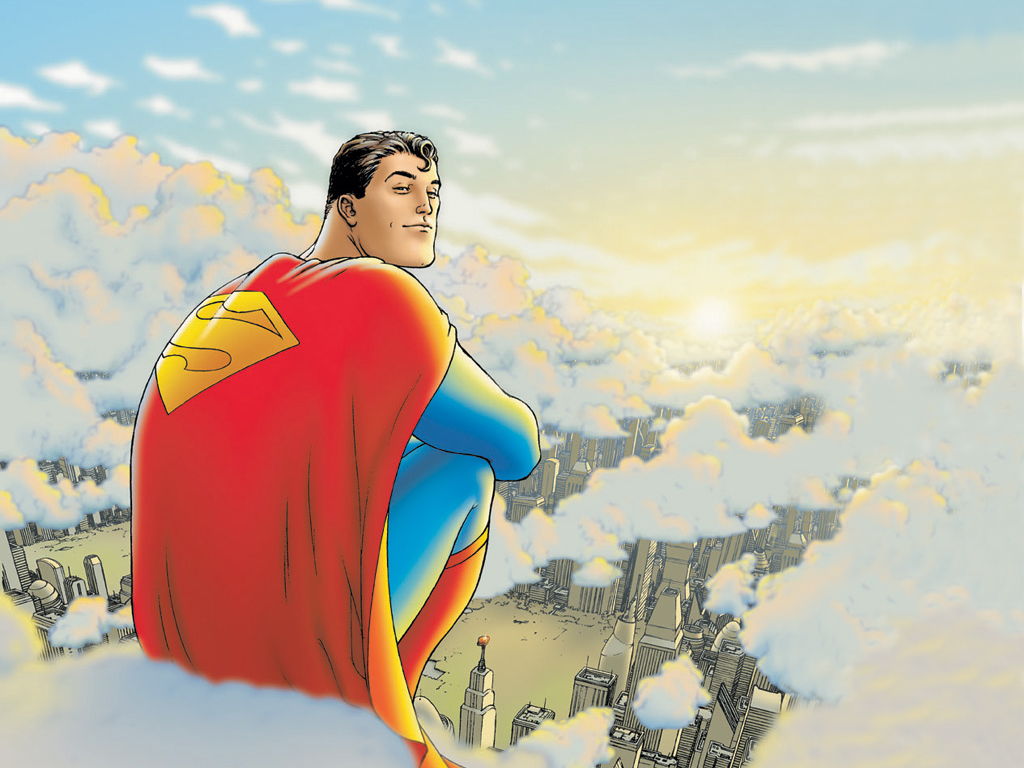
It was recommended to me by a friend, so I thought I just give a shot and honestly I was stunned. The quality of the writing, the trials and villains he faced along with this refreshing family dynamic he has with his wife and son, Lois Lane and Jonathan Kent. Writer Michael Brian Bendis might have revived my love for the character but it was metatextual comic book writer Grant Morrison that sealed the deal for me. Right hand to the Heavens, All-Star Superman is one of the most beautifully drawn and profoundly written stories of Superman yet. A love letter to the Man of Steel in the form of a timebomb narrative with him dying of cancer. It was spellbinding, ingenious and an absolute tearjerker.
So after tearing through Bendis and Morrison, I decided to take a look at contemporary depictions of Superman through the medium of film. Namely, the larger Warner Bros. films and I have got to say that I was unimpressed. Superman Returns came closest to capturing the spirit of the character and the world of Metropolis. Its Achilles’ Heel (or rather Kryptonite) however was its overemphasis on Clark and Lois’ romantic dynamic. Kevin Spacey was perfect for the role of Lex Luthor in my opinion. Easily the best on-screen incarnation of the character. Then in 2013, we got Man of Steel...and that’s where the trouble began. The whole film felt like it was setting up for something grand and hopeful with its entire first act being drowned in melancholy. I was just waiting for the moment when Superman would come into his own and become the hero we know him to be. It never came. All we got was a brooding reluctant Henry Cavill that punched good, and a lot of dead people in Metropolis. Even in Batman V. Superman, Clark was still mulling about his place in the world. Justice League didn’t do much for his character development either.
In spite of all these issues, I don’t believe that it is impossible to develop a Superman for the big screen that is worthy of his print status. In fact, there have been some smaller films, namely animated adaptations of popular storylines, that have succeeded in honouring the Kryptonian. And if Warner Bros. is going to retain him as intellectual property, there are some things they’re gonna have to figure out. Here’s how they can make Superman great again!
The Moral Theatre
 In the most recent incarnations of Superman, he’s often depicted as a walking deus ex machina and at times is overtly framed as a messiah. We get it Snyder, you can stop with the Jesus imagery. The problem with Superman in films like Man of Steel, Batman V. Superman and Justice League isn’t that Clark plays up his moral saviour role too much. Rather, it is his flagrant abandonment of the role as one when the plot necessitates a conflict. Let’s take Man of Steel as the prime example. In his fight with Zod, he clearly levels the entire city, making little to no effort to save the lives of the civilians around him. He doesn’t seem to try to mitigate the destructive effects of the conflict either. But this problem runs far deeper than just the way Superman is written in the film. The framing and structure of the film itself sets his devastating battle with Zod above the collateral damage in the wake of it. The audience isn’t meant to think about the countless deaths and destroyed property because the fight is justified. Whatever outcome that occurs from his actions are connoted as for “the greater good”. But as an audience member, this destruction fetish can feel very isolating, and it is also an inherent contradiction to the character we have come to know and love. And the one time, he does make an intentional point to save lives, he ends up violating a core tenant of his essence. Superman is not a killer. This raises the question: Who is Superman?
In the most recent incarnations of Superman, he’s often depicted as a walking deus ex machina and at times is overtly framed as a messiah. We get it Snyder, you can stop with the Jesus imagery. The problem with Superman in films like Man of Steel, Batman V. Superman and Justice League isn’t that Clark plays up his moral saviour role too much. Rather, it is his flagrant abandonment of the role as one when the plot necessitates a conflict. Let’s take Man of Steel as the prime example. In his fight with Zod, he clearly levels the entire city, making little to no effort to save the lives of the civilians around him. He doesn’t seem to try to mitigate the destructive effects of the conflict either. But this problem runs far deeper than just the way Superman is written in the film. The framing and structure of the film itself sets his devastating battle with Zod above the collateral damage in the wake of it. The audience isn’t meant to think about the countless deaths and destroyed property because the fight is justified. Whatever outcome that occurs from his actions are connoted as for “the greater good”. But as an audience member, this destruction fetish can feel very isolating, and it is also an inherent contradiction to the character we have come to know and love. And the one time, he does make an intentional point to save lives, he ends up violating a core tenant of his essence. Superman is not a killer. This raises the question: Who is Superman?
 Well, based on everything I’ve read so far in comics and seen in shows like Superman: The Animated Series and Justice League, he’s the ideal deontologist. This isn’t the first time our boy and favourite ethical Prussian philosopher, Immanuel Kant has appeared in our articles but we can think of no better ideals to represent Superman than this ethical whiz. In Kant’s worldview of deontology, it isn’t so much the outcome that matters but rather one’s adherence to a categorical imperative, a maxim or universal law one stakes their entire existence and moral compass on. To quote the man in one of his many hard-to-read works The Groundwork of the Metaphysic of Morals: “Act in such a way that you treat humanity, whether in your own person or in the person of any other, never merely as a means to an end but always at the same time as an end. I’ve always thought of Superman as someone who would talk first and punch only as a last resort, and never to kill. Superman is the equivalent of a god in the DC universe. Therefore to put him in a punching match with a big, bad villain would be the most generic way to frame the most generic aspect of his character: his strength.
Well, based on everything I’ve read so far in comics and seen in shows like Superman: The Animated Series and Justice League, he’s the ideal deontologist. This isn’t the first time our boy and favourite ethical Prussian philosopher, Immanuel Kant has appeared in our articles but we can think of no better ideals to represent Superman than this ethical whiz. In Kant’s worldview of deontology, it isn’t so much the outcome that matters but rather one’s adherence to a categorical imperative, a maxim or universal law one stakes their entire existence and moral compass on. To quote the man in one of his many hard-to-read works The Groundwork of the Metaphysic of Morals: “Act in such a way that you treat humanity, whether in your own person or in the person of any other, never merely as a means to an end but always at the same time as an end. I’ve always thought of Superman as someone who would talk first and punch only as a last resort, and never to kill. Superman is the equivalent of a god in the DC universe. Therefore to put him in a punching match with a big, bad villain would be the most generic way to frame the most generic aspect of his character: his strength.
A far more unique challenge to the Man of Steel would be moral dilemmas, which require him to use all of himself. His intellect to find the most effective way to neutralize a threat. His strength and powers to execute said way and most importantly the values that drive his actions. So if he’s facing a foe that could possibly devastate a whole city, he should lead the assailant into a barren, open area to reduce the possibility of collateral damage. If his opponent is a scared, angry individual, he should try comforting or reasoning with his would-be attacker. This, in turn, creates a dynamic, nuanced hero in lieu of a quick fix to a conflict. He’s an ambassador, a strategist, a one-man emergency response team and a warrior. It isn’t so much the idea of him saving the day that should intrigue audiences but rather the “how”. It is within these moments, we get to see his humanity, instead of him merely being a means to an end.
Keep Away From Kryptonite

I cannot overstate this enough. Avoid using Kryptonite at all cost! It is a crutch for uncreative writers to inject cheap suspense into a Superman film. Oh no, a small green rock, what ever shall he do? Some people might argue that Kryptonite is a quintessential part of the Superman lore and therefore shouldn’t be tampered with. Well then tell me, you purists, how come Green Lantern’s weakness is no longer wood? Because it’s a stupid f**king counter to his character, and so is Kryptonite in this case. Also, in plenty of shows and comic books, it’s been shown that Superman is well capable of getting his ass kicked by villains like Black Adam, Doomsday, Zod, Starro and even the occasional bat-themed vigilante. It’s fine for him to be vulnerable to things like magic and red sun radiation, as long as their used sparingly. But Kryptonite is just far too cheesy and ingrained as a pop culture joke to be used in any meaningful way. Instead, replace it with genuinely compelling villains.
 Superman has a ton of complex and powerful villains that would be more than a match for him. Furthermore, if you want them to be memorable, they need to have a compelling ethos to their villainy. A great villain to have some time in the franchise would be the cybernetically enhanced alien supercomputer, Brainiac. He preserves a sample of a world’s flora, fauna, culture and inhabitants before eradicating the planet itself. In his sick, twisted mind, he believes he is somehow bringing order to the universe. His motivations are very Thanos-like. In the animated film Superman: Unbound, Clark defeats Brainiac by revealing how his idea of order is flawed and how limited the cyborg’s comprehension of life is. Superman’s triumph is more than just a physical one but a moral one as well. The conflict is two-folds and so is his victory, giving the story an additional layer to it. This philosophical attachment to villains can be applied to nearly anyone within his rogues gallery really. Zod is a fanatical, Kryptonian supremacist but strongly believes it is his duty to civilize and rule humanity. He could come to represent Superman’s greatest temptation. After spending years fighting the good fight, Clark grows weary of it all. Zod comes along and provides an alternate path to world peace and perhaps even be a father figure to him.
Superman has a ton of complex and powerful villains that would be more than a match for him. Furthermore, if you want them to be memorable, they need to have a compelling ethos to their villainy. A great villain to have some time in the franchise would be the cybernetically enhanced alien supercomputer, Brainiac. He preserves a sample of a world’s flora, fauna, culture and inhabitants before eradicating the planet itself. In his sick, twisted mind, he believes he is somehow bringing order to the universe. His motivations are very Thanos-like. In the animated film Superman: Unbound, Clark defeats Brainiac by revealing how his idea of order is flawed and how limited the cyborg’s comprehension of life is. Superman’s triumph is more than just a physical one but a moral one as well. The conflict is two-folds and so is his victory, giving the story an additional layer to it. This philosophical attachment to villains can be applied to nearly anyone within his rogues gallery really. Zod is a fanatical, Kryptonian supremacist but strongly believes it is his duty to civilize and rule humanity. He could come to represent Superman’s greatest temptation. After spending years fighting the good fight, Clark grows weary of it all. Zod comes along and provides an alternate path to world peace and perhaps even be a father figure to him.
Then, there’s Lex Luthor, a sly, power-hungry genius industrialist who makes Superman doubt everything he believes in. The perfect adversary, a Randian man who believes that the noblest pursuit in life is one’s own self-interest. He could turn the public against Superman, showing the world that he’s irrelevant in a society where values like truth and justice are seen as passe. They tried doing Luthor that way in the first season of Justice League Unlimited and it was remarkable. It would require an actor who fits the part (not Jesse Eisenberg). Someone with charisma, gravitas and has flair for dramatic roles. Somebody like Bryan Cranston or Kevin Spacey. Take a page from The Dark Knight and put some conviction in your villains.
The Power of Plot

Right so we’ve addressed the nature of the character of Superman, the challenges he should face and adversaries that should populate his mythos. But even if the studio nails all of these elements, it’s not enough. I’ve come to realize that there’s fundamentally wrong with the way Warner Bros. approach Superman films. That flaw is found in the plot of the films. Hate to keep harping on Man of Steel but hey, it really is a great example of a terrible Superman film. The film sees Superman aimlessly wandering and shifting about waiting for people to tell him to something. Whether it’s his biological Kryptonian father Jor-El, the earthbound Pa Kent or even a random priest, he’s more of a responder to the events around him than an active agent. This tone is even carried on into BvS when his mother has to literally tell him what to do.
Author and fiction theorist K.M. Weiland in her book Creating Character Arcs would describe this form of storytelling as a positive change arc. Within this arc, the story centres around the “Lie the Character Believes”. The character throughout his journey must learn to unlearn the lies and deceptions told to him, from others and within, to reach an epiphany and overcome his struggle. This popular story arc can be seen in films ranging from Shrek to Return of the Jedi. There’s nothing wrong with it per se but frankly, it doesn’t work for Superman. The most recent version of Superman has so many people telling him so many contradicting opinions, he doesn’t know what to do. No, the way to go is a flat arc.
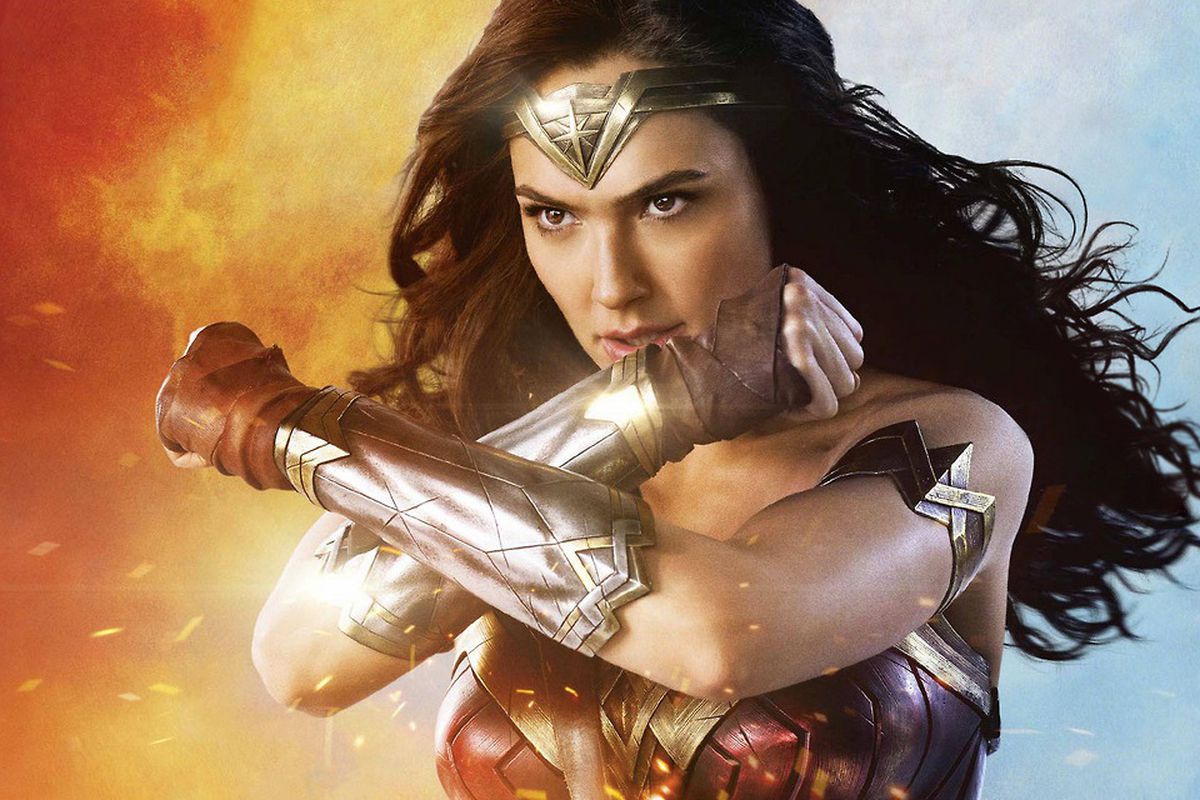 In a flat story arc, the character’s journey is not defined by the lie but rather the truth he believes in. Our character has always had the truth within him. So instead of him struggling to see the world in a new light, he struggles to reshape the world in his truth. In this case, Superman shouldn’t be compromising his moral worldview because of the evils of the world. He should be calling out the evils of this world for the lies they are and showing them a better way to live. Does this sound preachy and uninteresting? It doesn’t have to be. Some of our favourite films follow flat arcs like Indiana Jones, Captain America: The Winter Soldier, Wonder Woman and Hacksaw Ridge. Heck, there’s even a great example to be found in the animated film, Superman Vs The Elite. They weren’t boring because they had great writing and layered characters. And I’m not saying Superman can’t ever doubt himself but never to needlessly pander to dark, edgy teens. In a world full of anti-heroes and morally compromised do-gooders, Superman has a rare opportunity to be unique.
In a flat story arc, the character’s journey is not defined by the lie but rather the truth he believes in. Our character has always had the truth within him. So instead of him struggling to see the world in a new light, he struggles to reshape the world in his truth. In this case, Superman shouldn’t be compromising his moral worldview because of the evils of the world. He should be calling out the evils of this world for the lies they are and showing them a better way to live. Does this sound preachy and uninteresting? It doesn’t have to be. Some of our favourite films follow flat arcs like Indiana Jones, Captain America: The Winter Soldier, Wonder Woman and Hacksaw Ridge. Heck, there’s even a great example to be found in the animated film, Superman Vs The Elite. They weren’t boring because they had great writing and layered characters. And I’m not saying Superman can’t ever doubt himself but never to needlessly pander to dark, edgy teens. In a world full of anti-heroes and morally compromised do-gooders, Superman has a rare opportunity to be unique.
It’s been a long time since I’ve written this passionately about a comic book character. Maybe it’s because of the fact that we get at least three comic book films every year. Or maybe I’m just a jaded a**hole. In any case, I believe in Superman. I believe that he can be great again. I believe that he can do more than just lift a car or punch Steppenwolf. I believe he can be more than just a form of escapism or mindless entertainment. He can be the symbol that makes us want to be better, to be more courageous and to be more selfless. I believe Superman can save the day, on and off screen.
Hey you! Yes you, hot stuff. Like my article? Leave a comment below and let me know what you think. Also, don’t forget to share it with your buds. And if you’d like to talk movies you can hit me up here: @cinesam
Also, click here to check out our Zack Snyder’s Man of Steel reevaluation.

